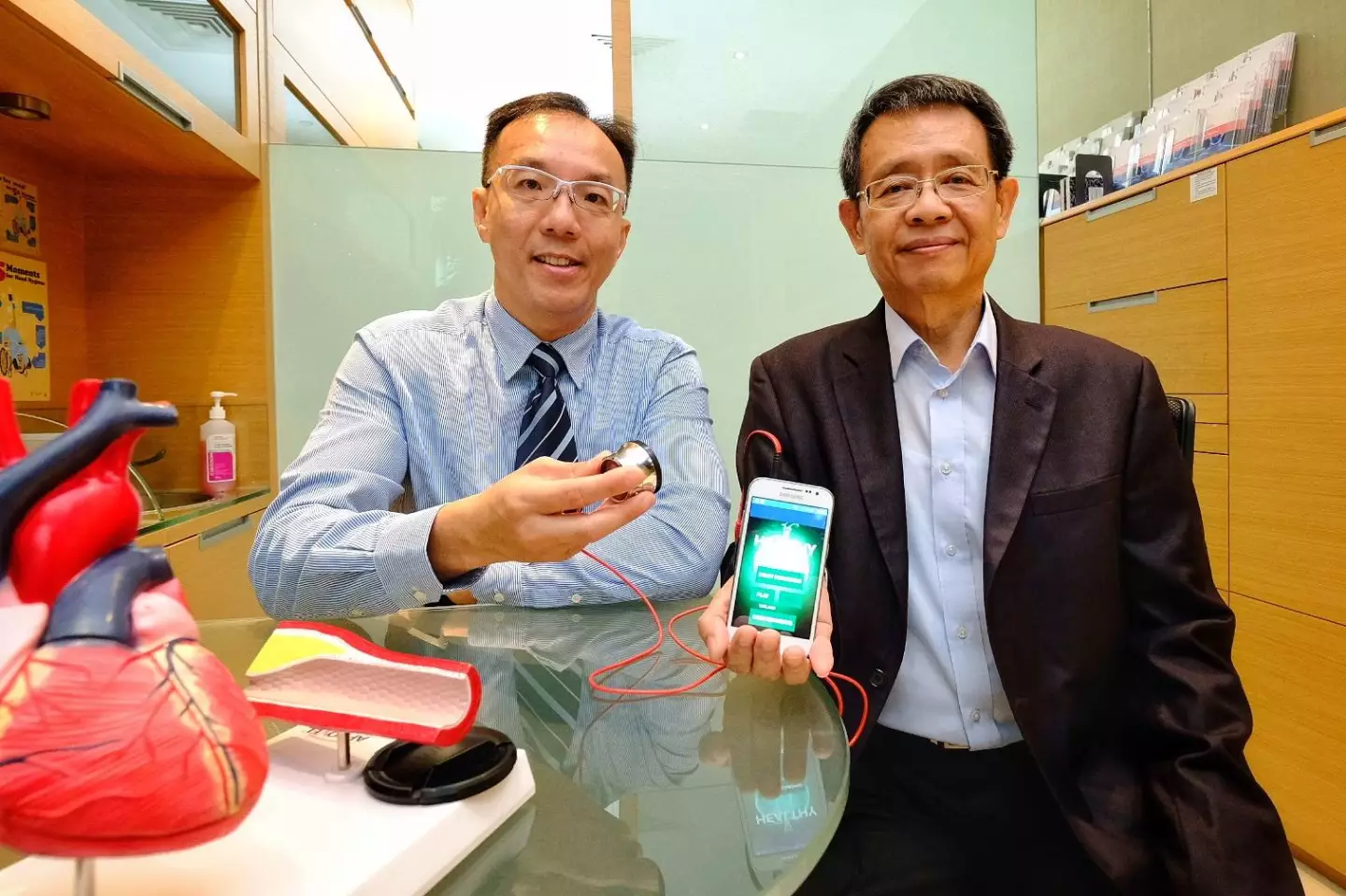One of the key symptoms of congestive heart failure is fluid accumulation in the lungs. Currently, people need to visit a clinic in order to check for such accumulation. Thanks to a new device, however, they may soon be able to perform checks whenever they want, in their own home.
When someone is experiencing congestive heart failure, their weakened heart isn't able to pump out enough of the blood that it receives from the lungs. This causes blood to back up within the lungs' veins and capillaries, exerting pressure. That internal pressure in turn causes fluid to accumulate within the lungs.
Developed by scientists at Singapore's Tan Tock Seng Hospital and Nanyang Technological University (NTU), the new device listens for the telltale sounds that are made when air passes through lungs that are filled with fluid. It consists of a stethoscope-like acoustic sensor which is hard-wired to a smartphone.
When feeling short of breath, at-risk users simply hold the sensor to their chest for 10 seconds. It relays lung sounds to an app on the smartphone, which in turn transmits the data to a cloud-based server. Algorithms process the data, determining the extent of the fluid accumulation, and thus the likelihood that congestive heart failure is the culprit.
A reading is subsequently transmitted back to the phone, where it's displayed on the screen. Based on that information, users can arrange to visit their doctor if needed, or simply continue to make healthy lifestyle choices and/or stay on their heart medication.
In lab tests performed on 86 congestive heart failure patients, the system was found to be 92 percent accurate at diagnosing the condition, as compared to existing "gold standard" diagnosis methods such as X-rays and CT scans. Further development of the technology should boost that figure even higher.
"Currently, such diagnosis can only be conducted through clinical examination, which cannot be made frequently," says NTU's Assoc. Prof. Ser Wee, who led the project along with Tan Tock Seng's Prof. David Foo. "Our smart medical device can be used by anyone, anywhere and any number of times, which will enable the possibility of early intervention of congestive heart failure."
Source: Nanyang Technological University






